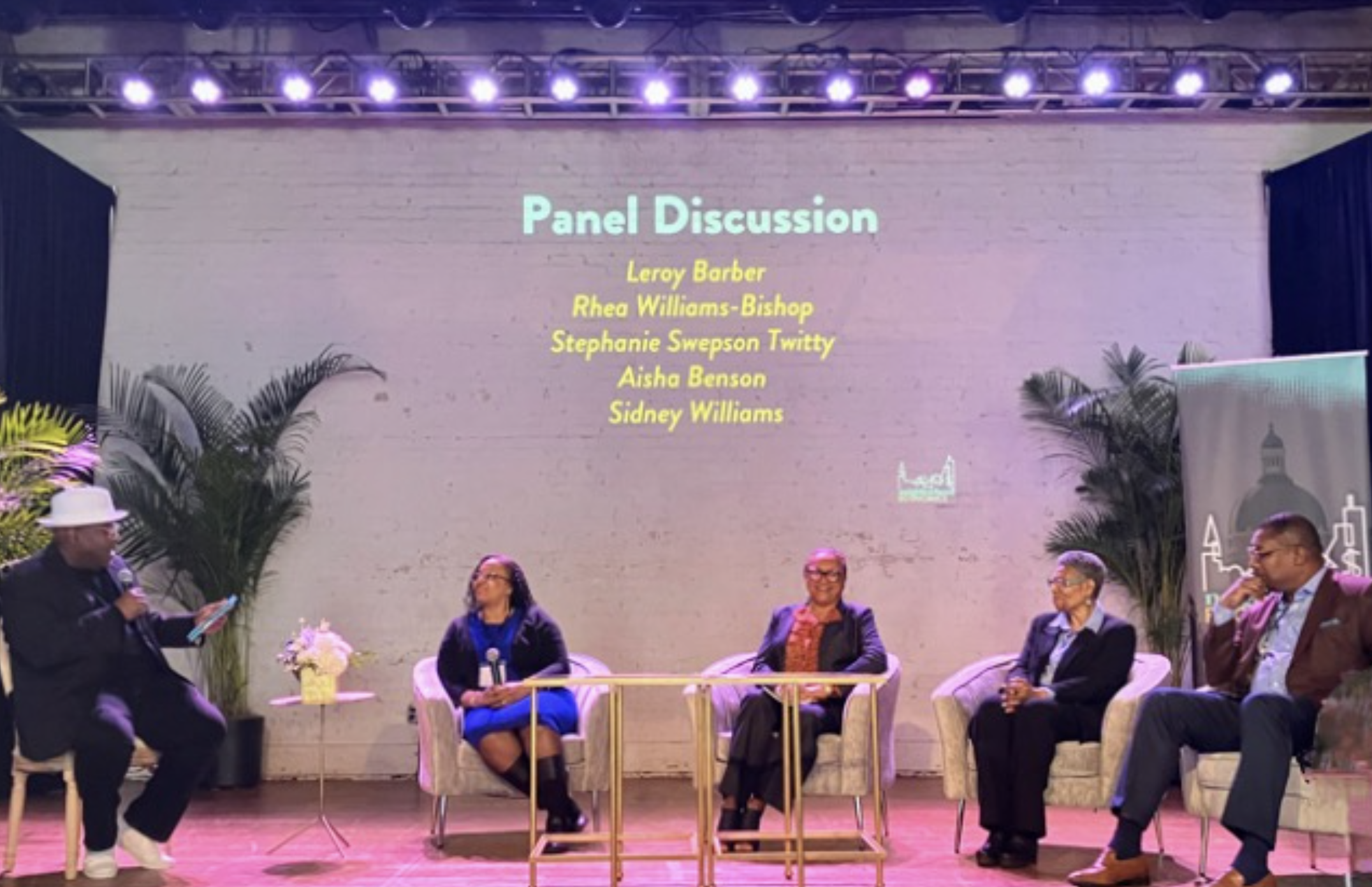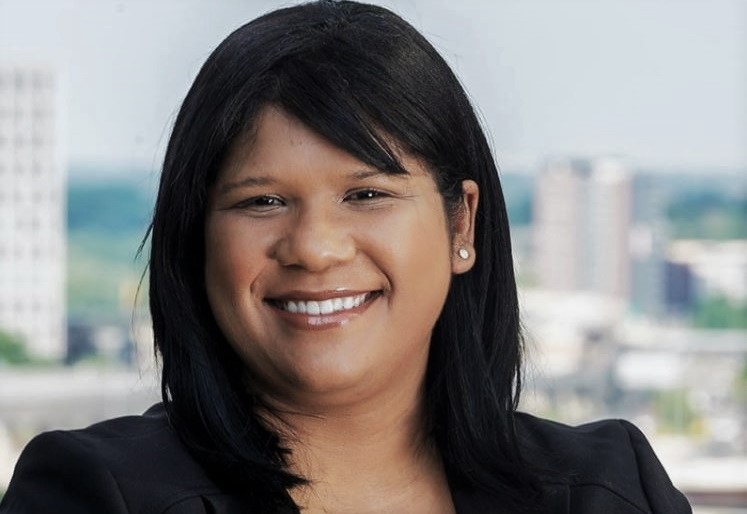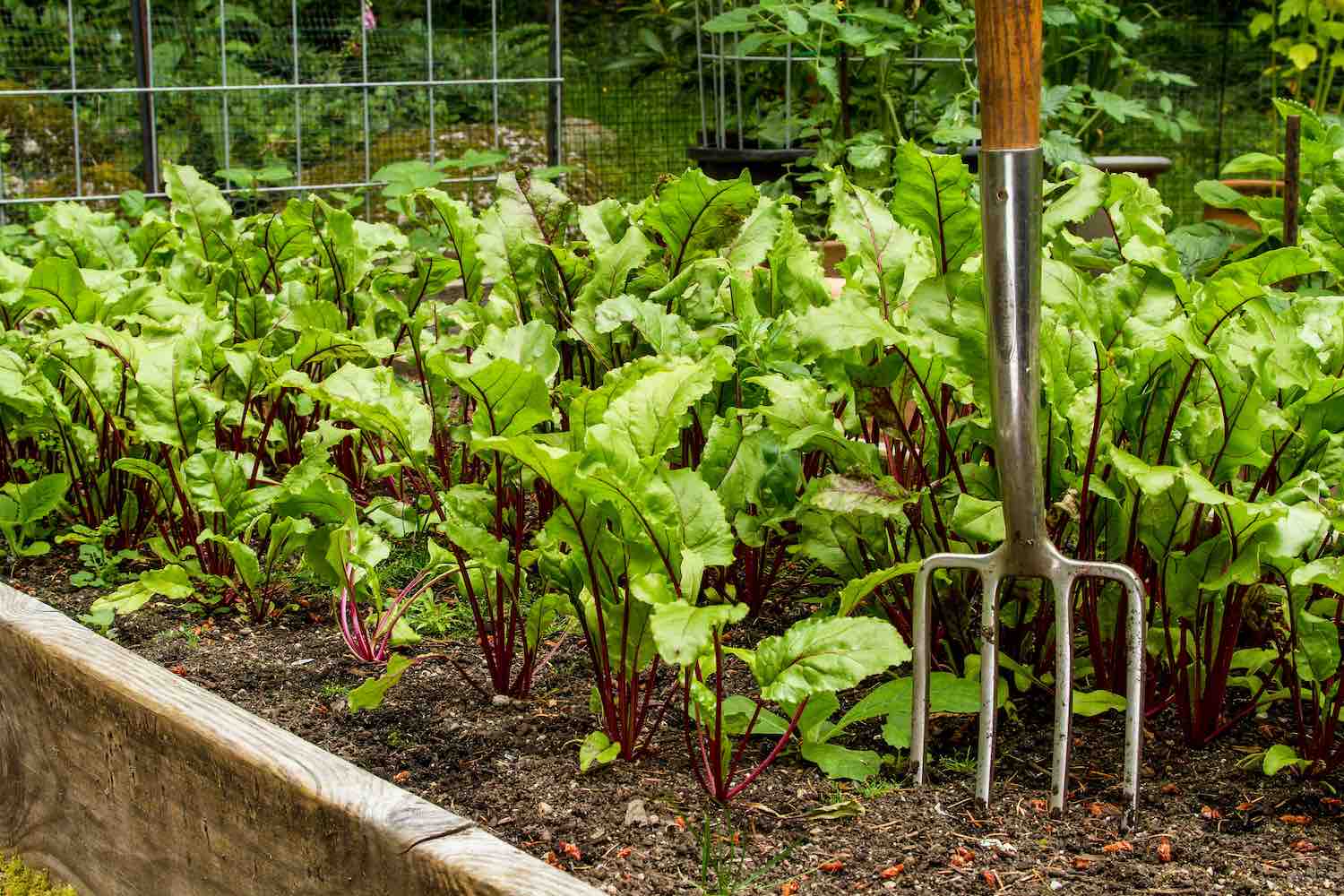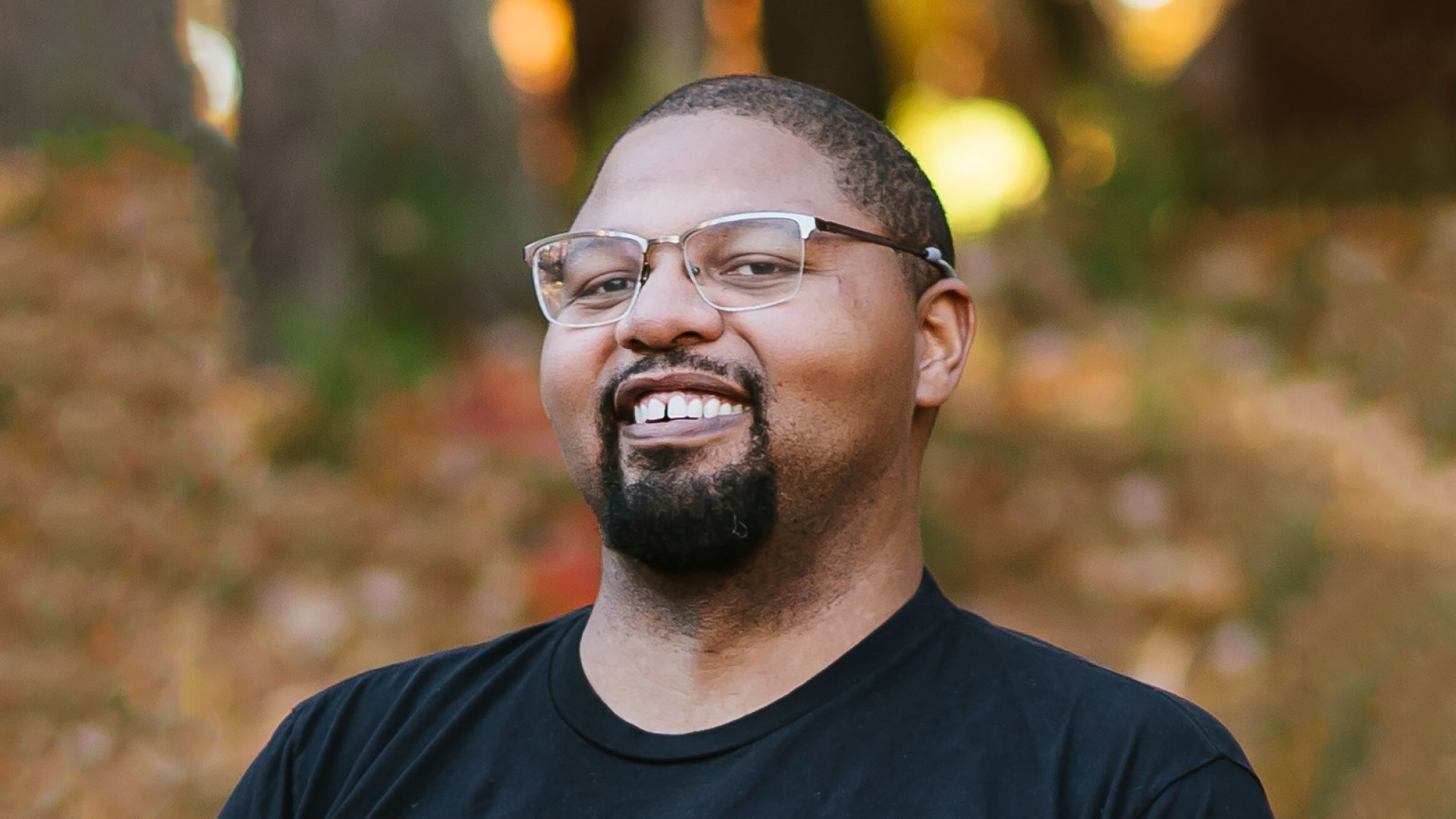A century ago, Black farmers represented 14% of all farmers in the U.S. Now? Just 1.4%. Barriers to affordable financing have cost farmers their land and operations. A pilot fund in New York state is positioning Black farmers and food entrepreneurs to set their own terms – and help shape the state’s food system.
The community-led Black Farmer Fund has so far raised $1 million in grants and loan capital to provide flexible capital for Black farmers, caterers, restaurant and food-truck owners, composters, herbalists and other land stewards.
Investees in the pilot phase included Trinity Farms, one of the longest standing Black-owned Farms in New York state; Big Dream Farm, which serves West African Muslim communties in Westchester and New York City; and Black Yard Farm, a worker-owned cooperative that focuses on animal husbandry and vegetable production.
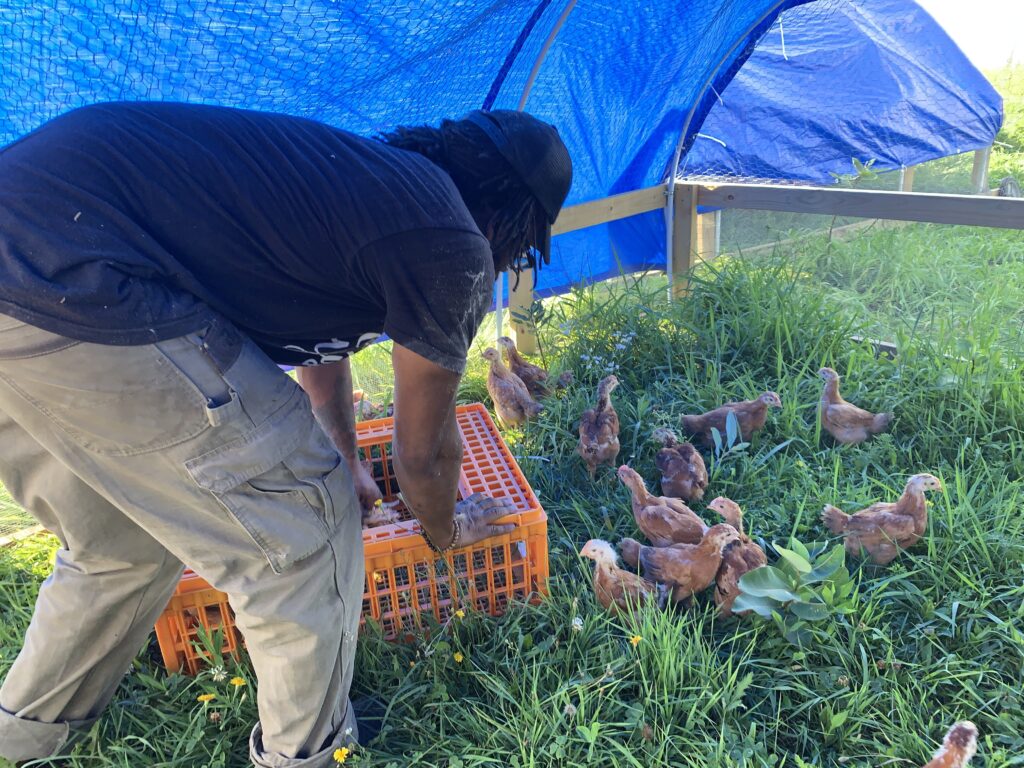
Self determination
The idea for Black Farmer Fund was formed out of a series of conversations among Black farmers in the Northeast who were seeking capital that did not replicate the discriminatory and predatory lending practices driving Black farmers and land stewards off their land. Instead, the fund would center the farmers’ lived knowledge, collective decision-making and community relationships.
Our collective commitment to these values is woven into everything we do and fundamentally shaped how we thought at every step.
- Local food entrepreneurs know the business sectors, models, and challenges their peers face. Food entrepreneurs bring experience and know the communities in which they’re working far better than investors who have little to no lived knowledge. Our decision-making process is shaped on the idea that Black farmers, organizers, healers, cooks, medicine people, etc, know their needs best, and can use that knowledge to assess each other’s projects, and therefore inform investments directly.
- Collective decision-making is critical. Practices around collective decision-making have existed in Black communities for generations. We are continuing that legacy today. Despite a rich history of these practices, Black farmers have been intergenerationally barred from decision-making over their farm conditions. BFF creates space for farmers to shape their own investment terms and for those in the food system more broadly to make collective investments. By making decisions together, community members are investing in each other and investing together.
- Investment decision-makers need to understand the applicants seeking funding. Through relationship building, one-on-one business development support, and including the entrepreneur in all stages of the due diligence and underwriting process, we developed an approach that truly centers the needs of those seeking funding to ensure that the funding will set them up for success. This requires time and care to understand previous challenges, current and future business goals, and repayment terms that best meet the needs of the entrepreneur, and thinking outside of the box of what is typically offered by traditional funding vehicles.
Lived knowledge
We were committed to having local food entrepreneurs drive BFF’s decision making process, from the kinds of capital we were providing, to who received it. From the outset of our pilot phase, we put this into practice by designing an investment committee of local Black food actors. Twelve Black farmers, food distributors, business owners, and organizers from across New York State were selected from more than forty applicants to form our pilot community and the decision making board for our first round of funding. This pilot community was charged with co-designing the investment guidelines and application process and ultimately selecting the investees for BFF’s first investee cohort.
In selecting members of this pilot community, we worked to bring diversity to our decision making through having representation from different roles in the food system, geographies in the state, and age ranges.
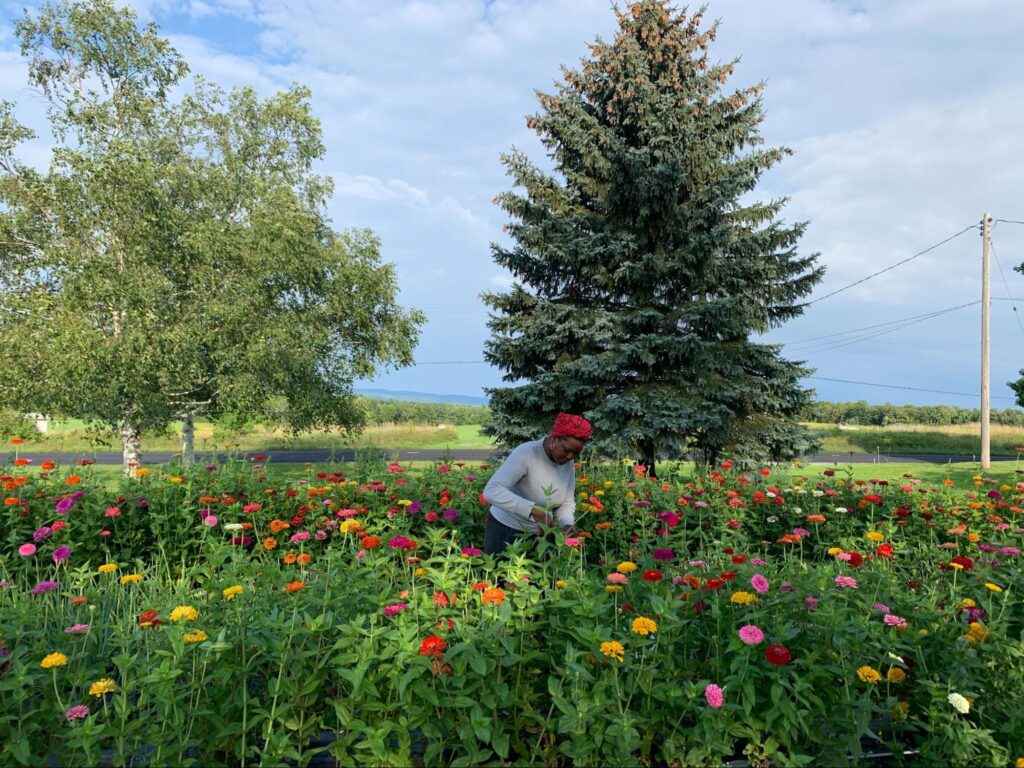
Collective decision-making
Not all food entrepreneurs with lived experience also have prior experience in making investment decisions. They needed space for trust, relationship building, and education on investing as a community before they made decisions together. This need has fundamentally shaped BFF’s identity. Community education around the historical legacy of Black food systems, finance and investing is core to how we think about building community wealth among farmers.
The pilot community spent three months building trust and getting oriented in why they were brought together prior to setting investment guidelines and reviewing applications. This included grounding in the historical context of Black ownership along the food chain and collective and cooperative models that have historically existed in Black communities. They also learned from guest speakers about community wealth building and due diligence to the development of investment criteria that businesses would need to meet. Lessons that the pilot community carried with them throughout their decision-making processes include the concept of cooperation over capitalism, the need for investments to be localized, and redefining what “risk” means with our investments.
Instead of focusing on, what is the risk financially of making this investment, the pilot community focused on the questions, “what is the risk to the community if we do not make this investment?” and, “what community risks could this investment support with addressing?”
Integrated capital
BFF staff and board raised a blend of grants and loans that are more patient than they would otherwise receive from traditional investors and the government. The fund would select businesses for funding that centered on three pillars: economic justice, community wealth building, and managing environmental and ecological impact.
In the pilot year, BFF received over 50 applications from farmers and food entrepreneurs across NY state. The pilot community reviewed a few applications each and got to know the applicants through individual calls and small group virtual meetings.
Eight businesses, across sectors and structures, ultimately received funding. Financed projects include:
- Farm Fresh Caribbean Growers, which specializes in vegetables from the Caribbean such as the leafy green callaloo;
- 716CBD, a health and wellness apothecary and healing space;
- Trinity Farms, one of the longest standing Black-owned Farms in New York state;
- Big Dream Farm, which serves West African Muslim communities in Westchester and NYC;
- Rootwork Herbals an herbal education business that concentrates on serving Black, Indigenous and People of Color, as well as and queer and trans communities;
- Rocky Acres Community Farm, which centers community and growing culturally relevant produce;
- True Foods Hudson Valley, a grassroots food preservation collective; and
- Black Yard Farm, a worker-owned cooperative that focuses on animal husbandry and vegetable production.
From the fund, businesses received $50,000 in grant capital. Debt capital amounts varied based on the entrepreneur’s specific needs. Funds went towards infrastructure improvements, increasing access to products, purchasing equipment and land acquisition.
The philanthropic capital is administered by BFF as grants to the applicants. Fair Food Fund, the impact investing arm of Michigan-based farming nonprofit Fair Food Network, is administering, deploying, and managing Black Farmer Fund’s notes for the pilot fund, while mentoring and training the Black Farmer Fund team to take ownership of the pilot fund within the next year.
Another innovation: social and environmental impact covenants that can reduce interest rates for farmers.
In addition to funding, all businesses received one-to-one business development support. BFF will continue to provide additional technical assistance based on their specific needs.
While this round is centered around farmers and herbalists, BFF intends to support businesses across the entire food ecosystem – from farm to fork.
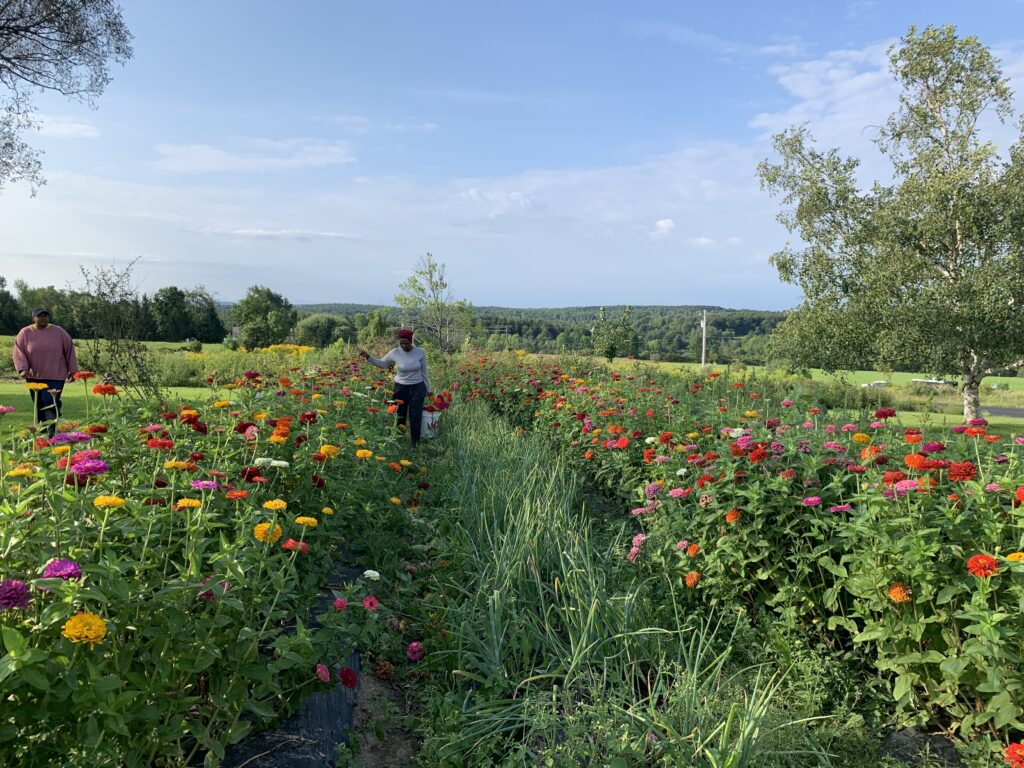
Collective learning
Our pilot phase was just that – a pilot. Many lessons and learnings came from this, and though there are many aspects of this process that we will keep, there are other things that Black Farmer Fund will do differently.
We will continue to prioritize relationship and network building through creating virtual and in-person spaces for current investees to connect and learn with and from each other – and with the larger Black Farmer Fund community.
The team is transitioning from a pilot community to a more permanent standing investment committee, and using the experiences from the pilot phase to build out a streamlined process for future deployments of capital. This new phase will also include a more expansive learning curriculum to ensure that our investment committee is collectively building the skills needed to make informed decisions and more internal capacity to carry through full due diligence and technical assistance. To stay connected to our work, sign up for our monthly newsletter and follow us on Instagram and LinkedIn.
Melanie Allen is program director for Black Farmer Fund. Onyx Ramirez, communications lead for the Black Farmer Fund, contributed to this post.




